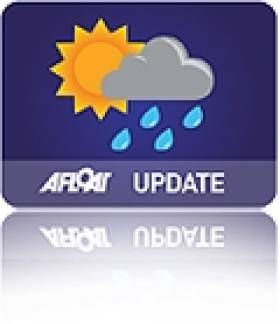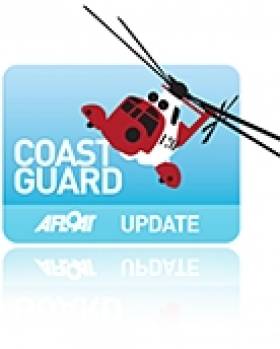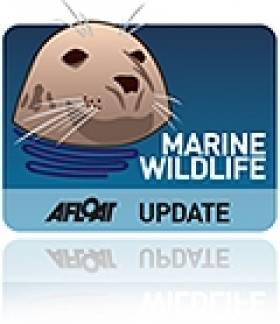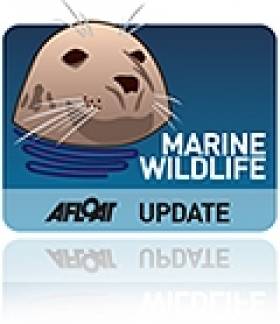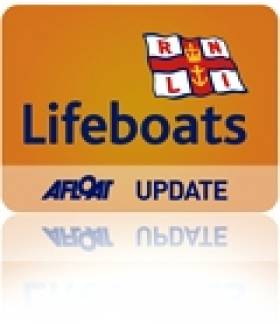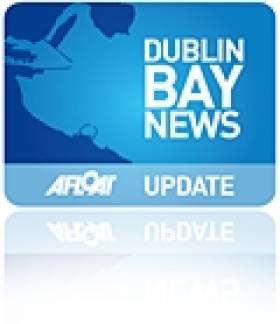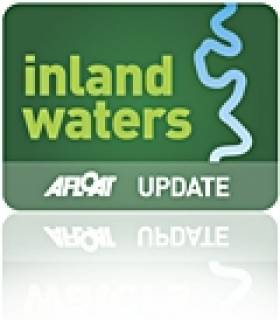Displaying items by tag: Volunteers
Help Record Old Weather Data to Predict Climate's Future
#WEATHER - A new project has been launched encouraging web users to help recover worldwide weather data recorded by Royal Navy ships a century ago.
Old Weather is 'crowdsourcing' volunteers to assist in transcribing weather readings and location data from First World War ships' logs into a database, in order to identify weather patterns and extremes the world over.
At present the site needs help transcribing data from 27 Royal Navy vessels and the courses they sailed, from Britain and Ireland to the farthest reaches of the globe.
The more people that take part in Old Weather, the more accurate the data extracted from the ships' logs will be.
Each logbook will be also looked at by more than one person, allowing mistakes and errors to be filtered out.
The historical data will enable scientists to improve their understanding of weather variabilty in the past and in turn improve their ability to predict weather and climate in the future.
For more details visit www.OldWeather.org.
Go-Ahead for Killybegs Coastguard Station
#COASTGUARD - The Office of Public Works has given the go-ahead to a long-awaited new coastguard station for Killybegs, the Donegal Democrat reports.
The multi-million-euro three-storey station - replacing the current 20-year-old building, which is deemed no longer suitable to demands - will be constructed at the Rough Point and will include a boat house and pollution control centre.
The Irish Coast Guard unit at Killybegs has 25 volunteer members, and also operates as a mountain and cliff rescue service. The unit serves one of Ireland's busiest ports.
The Donegal Democrat has more on the story HERE.
Seriously Ill Seal Pup Now In Recovery
#MARINE WILDLIFE - A harbour seal pup found in a serious condition in Balbriggan last week is new recovering in the care of the Irish Seal Sanctuary.
Colin, as he has been named by ISS volunteers, was discovered on Kings Beach suffering from blood loss and breathing problems, the Fingal Independent reports.
An ISS spokesperson remarked that it was "very unusual" to find harbour seal pups this late in the year, and in an area dominated by colonies of grey seals.
Thanks to medicine donated by the Dogs Aid veterinary clinic in north Dublin, Colin is now "making great progress" though full recovery will take some time.
The seal pup will remain in the care of the ISS until he is fit enough to be returned to Balbriggan for release.
Common Seal Pups Rescued in Dublin
#MARINE WILDLIFE - Seal pups Rebecca and Emma had a curious audience of tourists at Malahide Castle earlier this month as they prepared for their relocation to Dingle, where they will be cared for by Irish Seal Sanctuary (ISS) volunteers.
The pups were rescued from different parts of north Dublin. Both were found very ill at the time, but according to the ISS, volunteers rallied to their support, providing much needed fluids for rehydration before their long journey south.
Rebecca is named after the daughter of her rescuer, ISS volunteer and Howth businessman Jon Cooke. Meanwhile, Emma was rescued by one of the founder members of the ISS, Johnny Woodlock, from the beach in Skerries.
The ISS added that it is grateful for the sponsorship of the rehab season the Dingle Wildlife and Seal Sanctuary is providing for the seal pups' care.
Howth RNLI Names New Treasurer at AGM
David Sargent was named as the new treasurer of Howth RNLI at the lifeboat branch's AGM and awards event recently, The Irish Times reports.
Sargent succeeds Capt Peter McKenna, who served as treasurer for the last 16 years and was awarded for his service by Howth RNLI chairman Russell Rafter.
The meeting at Howth Yacht Club saw Rafter recognise the efforts of the lifeboat's crew and fundraising volunteers - such as the Howth Sea Angling Club, who raised more than €2,000 from collection boxes last year.
Rafter awarded the organisations highest award for volunteers, the Gold Medal of the Institution, to the late former chairman Alastair McMillan, who was a committee member for 44 years.
Meanwhile, the Long Service Badge for 20 years’ service was presented to crew member Ian Massey.
Organisers of the Focus Ireland Triathlon in Dun Laoghaire on Sunday 31 July have announced a list of road closures in the area, and have also put out a call for volunteers to assist on the day.
Full road closures will be necessary from 7.45am to 11am in the Blackrock, Monkstown and Dun Laoghaire areas. A complete list plus a map of road closures and diversions are available to download below.
Meanwhile, volunteers are required to assist in all aspects of the event. Canoeists and kayakers are especially needed for safety support during the swimming section of the race.
Anyone who has some time to help out on the day, or who can supply canoes or kayaks for the event, is urged to contact events assistant Anne Griffin at [email protected].
Entries are still open for the Focus Ireland Triathlon, which comprises a 750m/350m swim, a 20k cycle and a 5k run. Registration is €80 for individuals/€240 for teams and entries can be made at www.focusireland.ie. For more details call 1850 204 205 or e-mail [email protected].
'Bag' that Maritime Museum
A 'Bag-Packing Day' in aid of the Maritime Museum in Dun Laoghaire is to start tomorrow, writes Jehan Ashmore.
The fund-raising activity will also run on the Friday and Saturday at the Tesco Bloomfield Shopping Centre off Lower Georges Street.
Volunteers are invited to assist in providing two hours of their time to help raise funds for the Maritime Museum which is currently closed due to ongoing renovation work.
For further information please call (01) 214 3964 or email: [email protected]
The museum is located in the former Mariners Church and is run by the Maritime Institute of Ireland (M.I.I.). The museum is to be officially reopened in March 2012, however they intend to be open to the public before their 70th anniversary in October 2011.
Information about the M.I.I. and the museum which welcomes new members can be found on www.mariner.ie
Antrim Sping Cleaners Find Riverbed Bomb
Inland Waterways Spring cleaners at Sixmilewater River in Co Antrim got the surprise of their lives last weekend when a Second World War mortar shell was discovered in the riverbed.
Volunteers for Big Spring Clean Week had already picked it up from the water, thinking it at first to be a piece of metal piping, before they realised what they really had on their hands.
The Belfast Telegraph reports that the shocking find sparked a security alert for most of the day. The nearby Dublin Road was closed while army bomb disposal experts removed the device for examination.
The bomb was described a being 20 inches long, "torpedo-shaped" and "pale green".
It joined a list of random items including a bicycle, three scooters, golf clubs and a taxi sign that were retrieved from a single 100m stretch of the river near the Antrim Forum.
Lecture: 'The Kowloon Bridge & Her Sisters'
The Stella Maris Seafarers' Club, Beresford Place, is located beside Busaras and faces opposite the rear of the Customs House. Nearby is the Irish Life Center (ILAC) which is convenient for car-parking and buses, the 'Red' Luas (Busaras stop) and DART stops at Connolly /Tara St. stations. All are welcome, bar and refreshments and a voluntary contribution is appreciated.
For further information about lectures and updates on the M.I.I's maritime museum located in the Mariners Church, Dun Laoghaire log on to www.mariner.ie. The museum which is due to reopen this year are looking for volunteers to help, for further details click here.
Maritime Museum Needs You!
The Maritime Institute of Ireland (M.I.I.) is looking for volunteers to assist in the running of the maritime museum, located in the former Mariners' Church in Dun Laoghaire, Co. Dublin.
A Volunteers Induction Meeting is to be held on 15 February at 8 p.m. in the Dun Laoghaire Club. Please register in advance. For further details click this link.
In addition to the various roles and activities required in the operation of the museum, the institute, are looking for people who can assist from time to time with the setting up of special exhibitions, the making of DVDS to go with displays and website maintenance.
For general information and other updates about the museum log on to www.mariner.ie


























